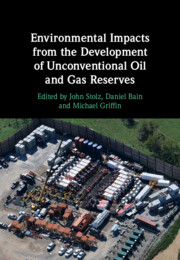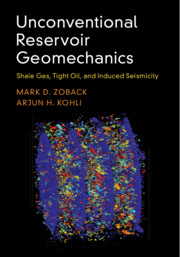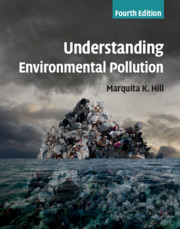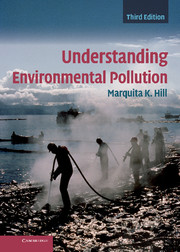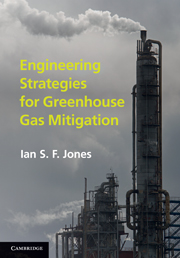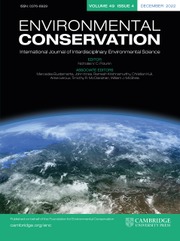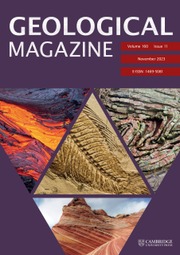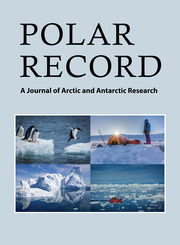Environmental Impacts from the Development of Unconventional Oil and Gas Reserves
The development of unconventional oil and gas shales using hydraulic fracturing and directional drilling is currently a focal point of energy and climate change discussions. While this technology has provided access to substantial reserves of oil and gas, the need for large quantities of water, emissions, and infrastructure raises concerns over the environmental impacts. Written by an international consortium of experts, this book provides a comprehensive overview of the extraction from unconventional reservoirs, providing clear explanations of the technology and processes involved. Each chapter is devoted to different aspects including global reserves, the status of their development and regulatory framework, water management and contamination, air quality, earthquakes, radioactivity, isotope geochemistry, microbiology, and climate change. Case studies present baseline studies, water monitoring efforts and habitat destruction. This book is accessible to a wide audience, from academics to industry professionals and policy makers interested in environmental pollution and petroleum exploration.
- Provides a comprehensive, multidisciplinary overview, covering global reserves, processes involved in extraction and the regulatory framework in different countries
- Includes in-depth case studies and emphasis on specific impacts from water management to radioactivity to seismicity
- Written in accessible language for non-experts, the book also includes technical details for those already familiar with the field making it useful to a wide readership
Reviews & endorsements
'… one of the best, most readable textbooks this reviewer has encountered on the development of unconventional oil and gas reserves … Having personally worked in petroleum production and environmental protection and garnered considerable knowledge of the subject matter, this reviewer still learned much from this eye-opening, multi-authored work. …Highly recommended.' M. S. Field, Choice
Product details
No date availableAdobe eBook Reader
9781108807302
0 pages
Table of Contents
- Part I: Overview
- 1. Global Unconventional Oil and Gas Reserves and Their Development John F. Stolz, Cassandra Ziegler, W. Michael Griffin
- 2. Unconventional Shale Gas and Oil Extraction in the Appalachian Basin John F. Stolz, W. Michael Griffin
- 3. An Overview of Unconventional Gas Extraction in Australia: The First Decade Geralyn Mccarron, Shay Dougall
- 4. The Governance of Fracking: History, Differences, and Trends John D. Graham, John A. Rupp
- Part II: Environmental Analysis
- 5. Air Quality Albert A. Presto Xiang Li
- 6. Methane and Climate Change Robert W. Howarth
- 7. Water Usage and Management Jessica M. Wilson, Jeanne M. Vanbriesen
- 8. Seismicity Induced by the Development of Unconventional Oil and Gas Resources David W. Eaton
- 9. Naturally Occurring Radioactive Material (NORM) Nathaniel R. Warner, Moses A. Ajemigbitse, Katharina Pankratz, Bonnie Mcdevitt
- 10. Metal Isotope Signatures as Tracers for Unconventional Oil and Gas Fluids Brian W. Stewart, Rosemary C. Capo
- 11. Isotopes as Tracers of Atmospheric and Groundwater Methane Sources Amy Townsend-Small
- 12. The Microbiology of Shale Gas Extraction Sophie L. Nixon
- Part III: Case Studies
- 13. Evaluation of Potential Water Quality Impacts in Unconventional Oil and Gas Extraction: The Application of Elemental Ratio Approaches to Pennsylvania Pre-Drill Data Daniel J. Bain, Tetiana Cantlay, Rebecca Tisherman, John F. Stolz
- 14. A Baseline Ecological Study of Tributaries in the Tenmile Creek Watershed, Southwest Pennsylvania Brady Porter, Elizabeth Dakin, Sarah Woodley, John F. Stolz
- 15. The Effects of Shale Gas Development on Forest Landscapes and Ecosystems in the Appalachian Basin Margaret C. Brittingham, Patrick J. Drohan
- 16. Managing TDS and Sulfate in the Monongahela River Three Rivers QUEST Paul Ziemkiewicz, Melissa O'neal, Tamara Vandivort, Joseph Kingsbury, Rachel Pell
- Index.

